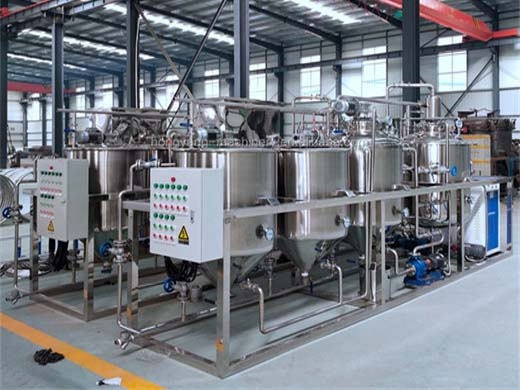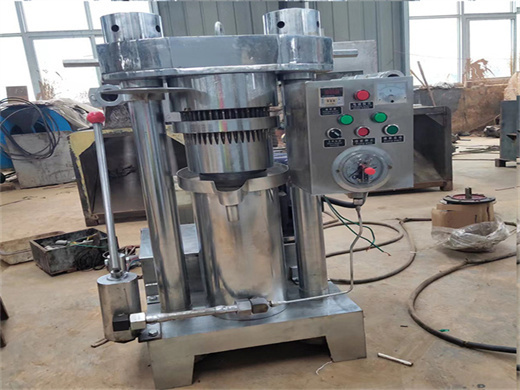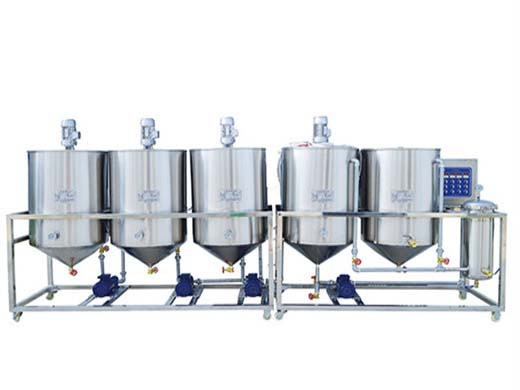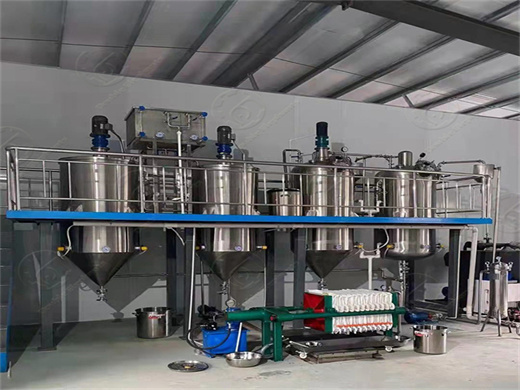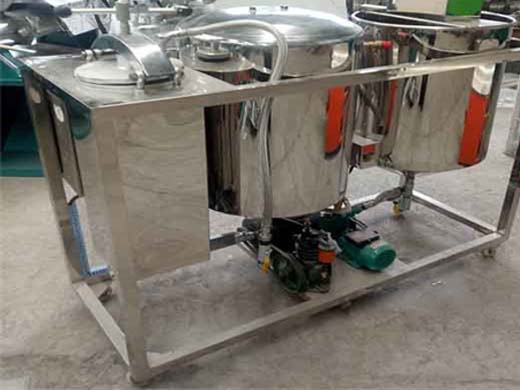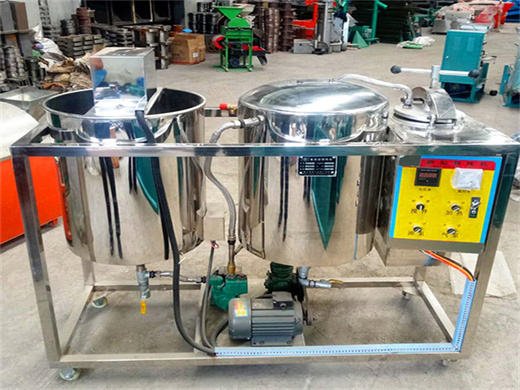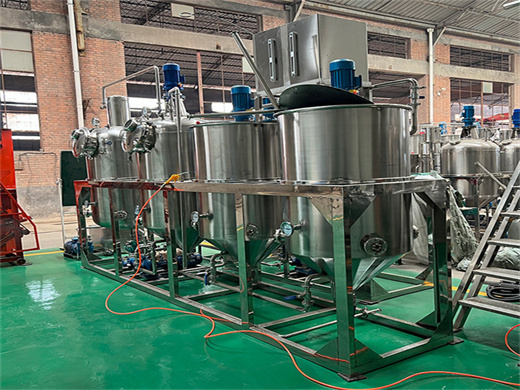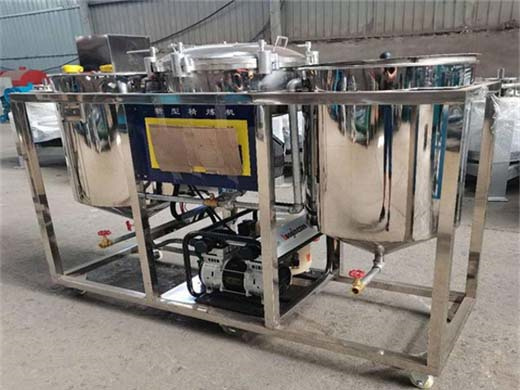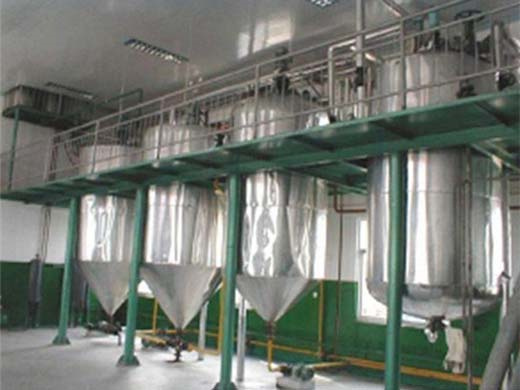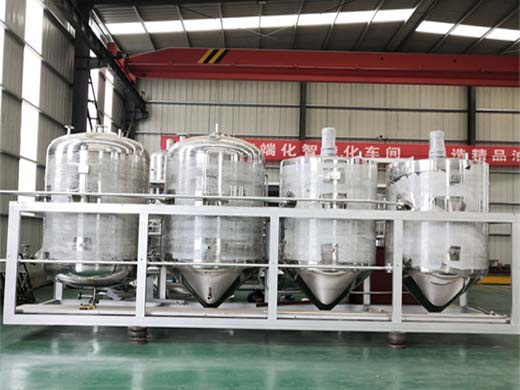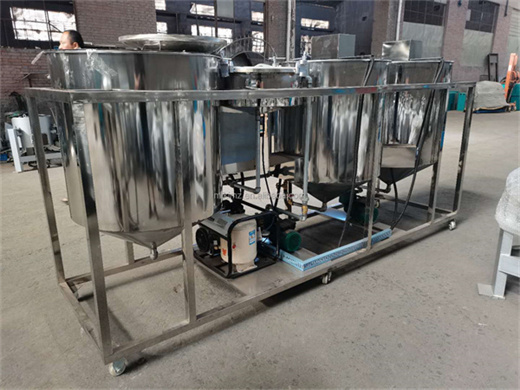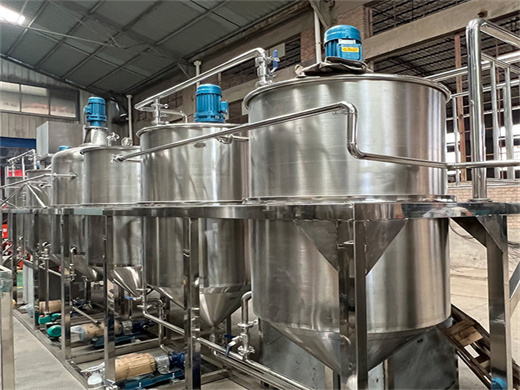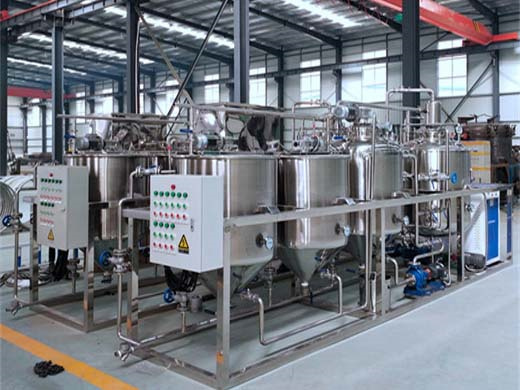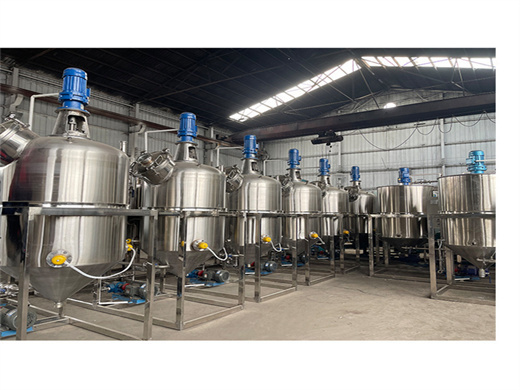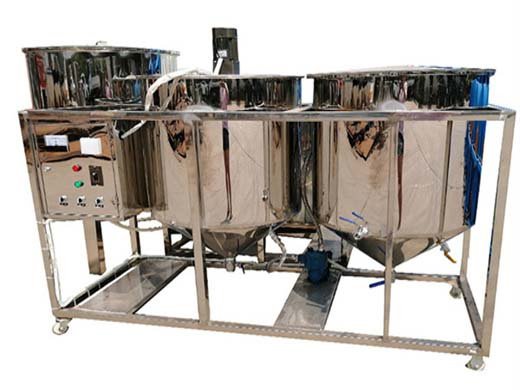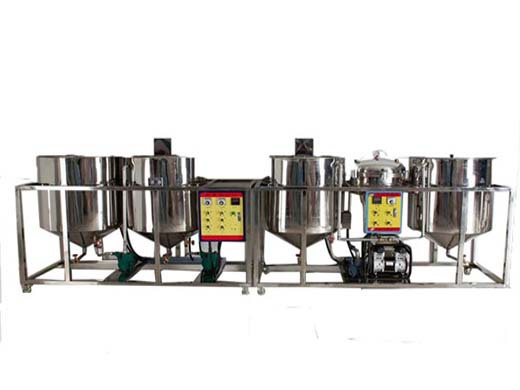Oil Refining - an overview | ScienceDirect Topics
Oil refining refers to any postextraction treatment that is utilized to obtain high-quality oil for various uses. Crude oil contains many impurities including phosphatides, free fatty acids, gummy substances, color bodies, tocopherols, sterols, hydrocarbons, ketones, and aldehydes.
Oil refining includes the water degumming process, which was formerly only used to prepare the crude sunflower seed oil for sale to refiners. Crude oil delivered to a refiner has to meet a residual phosphorus specification of 200 ppm maximum.
Oil Refinery - an overview | ScienceDirect Topics
Originally built in 1955 as a Shell Oil Refinery the Tesoro Anacortes, Washington, Refinery is located about 70 miles north of Seattle. This facility supplies primarily gasoline, jet fuel, and diesel to regional markets in Washington and Oregon. The refinery also manufactures heavy fuel oils, liquefied petroleum gas, and asphalt.
Oil refining refers to any postextraction treatment that is utilized to obtain high-quality oil for various uses. Crude oil contains many impurities including phosphatides, free fatty acids, gummy substances, color bodies, tocopherols, sterols, hydrocarbons, ketones, and aldehydes. These impurities are removed in the refining process.
Oil Refining - an overview | ScienceDirect Topics
Since 1981, Singapore has built up its capacity as an oil trading hub to become one of the world’s top three oil refining centers. In 2007, the oil and gas sector contributed 5% of the nation’s GDP with daily refinery output estimated at 1.3 million barrels. The facilities are hosted on Jurong Island.
Petroleum refining workers may potentially be exposed to a large number of substances that occur in crude oil, process streams, intermediates, catalysts, additives, and final products (IARC 1989a). Small excesses from brain and CNS cancers have been found in several US studies of petroleum refinery workers, for example, in Canada (SMR = 1.18,...
Petroleum Refining Overview - Inside Mines
Simple refineries near oil production Kinder Morgan, Galena Park, TX –50,000 bpd (condensate splitter) Dakota Prairie Refinery –20,000 bpd Bakken crude topping unit with diesel hydrotreating •Meridian Energy Group near Belfield, ND o 49,500 bpd refinery o Originally expected 2024 startup –may
The analysis of differences in the scope of Renewable Energy Policy in individual countries should take into account the scale of the share of the oil refining and refining industry in the entire
Petroleum Refining Overview - Inside Mines
August 1859, Oil Creek in northwestern Pennsylvania First refineries built up around Pennsylvania oil wells. Batch distillation to recover kerosene. •First U.S. refinery in Pittsburgh, PA, in 1853 •Kerosene viewed as a superior replacement to whale oil for lamp oil. Standard Oil Trust
The topic pages are also accessible through search engines such as Google to offer a free layer of content users seeking a quick overview to a subject. With ScienceDirect Topics, researchers now have rapid access to the most relevant content – filtered to prevent information overload — right when and where they need it.
AN INTRODUCTION TO PETROLEUM REFINING AND THE PRODUCTION
AN INTRODUCTION TO PETROLEUM REFINING AND THE PRODUCTION OF ULTRA LOW SULFUR GASOLINE the higher its C/H ratio. Due to the chemistry of oil refining, the higher the C/H ratio of a crude oil, the more intense and costly the refinery processing refinery energy use, the two largest components of total refining cost .
An Overview of the Refining Process
Published on Jan 23, 2024. Ever wondered how an oil refinery works? Now you can learn more about the technology involved in refining crude oil into the thousands of petroleum-based products you
Oil Refining Market | Growth, Trends and Forecasts (2024-2025)
The global refining capacity is expected to register a CAGR of around 1.25% during 2024-2025, with majority of refinery coming in Asia -Pacific and the Middle East. With current global refining capacity of around 100 million barrel per day (mbd), Asia Pacific dominates the market with around 35% of global refining capacity.
Chapter 5 The Petroleum Refining Industry
Chapter 5 The Petroleum Refining Industry INDUSTRY OVERVIEW The petroleum refining industry uses the largest quantity of premium fuels in the industrial sec-tor, amounting to 2,7 Quads in 1981. ’ It is sec-ond only to the chemicals industry in the total amount of energy it consumes. Classified under SIC 29, the petroleum refining industry is
Refining & Marketing | IHS Markit
Understand changing dynamics in the oil refining and marketing value chain around the world with IHS Markit energy refining and marketing insight, data and analysis. As the globalization of the refining industry continues to accelerate, downstream players need to make strategic long and short-term decisions.
The Economics of Petroleum Refining
competitors. In the oil refining business, the cost of inputs (crude oil) and the price of outputs (refined products) are both highly volatile, influenced by global, regional, and local supply and demand changes. Refineries must find the sweet spot against a backdrop of changing environmental regula-
The Economics of Petroleum Refining
competitors. In the oil refining business, the cost of inputs (crude oil) and the price of outputs (refined products) are both highly volatile, influenced by global, regional, and local supply and demand changes. Refineries must find the sweet spot against a backdrop of changing environmental regula-
What is a topic page? – ScienceDirect Support Center
A topic page contains up-to-date foundational information relevant to a key concept or term which appears in an article in ScienceDirect. The topic information is compiled from Elsevier encyclopedias, reference works, and books. On a topic page, you may find: Definition or description of the term; General overview of the concept
petroleum refining | Definition, History, Processes
Petroleum refining, conversion of crude oil into useful products, including fuel oils, gasoline (petrol), asphalt, and kerosene. Learn more about petroleum refining, including its history and the various processes used to create the different products.
Oil Refinery Safety Topics | Bizfluent
An oil refinery accepts crude oil of various grades and distills its components into several products, ranging from propane and gasoline to "bunker oil," which fuels power plants and ocean-going ships. When toxic, flammable material is boiled under pressure, things can go wrong in many different ways, and the
The Three Stages of Oil Refining | Planète Énergies
The Three Stages of Refining. Crude oil needs to be processed before it can be used (See Close-Up: "Why Crude Oil Needs to be Refined"). Three major types of operation are performed to refine the oil into finished products: separation, conversion and treating.
Petroleum Refining in Nontechnical Language: Leffler
William Leffler's Petroleum Refining in Nontechnical Language, Fourth Edition is designed to give the reader an overview of key refining topics by using relevant analogies, easy-to-understand graphs, formulas, and illustrations.
How the Oil and Gas Industry Works – Investopedia
The oil and gas industry is the largest sector in the world in terms of dollar value. It contributes significantly to the gross domestic product (GDP) of many nations and generates billions of
Oil Refinery Safety Topics | Bizfluent
An oil refinery accepts crude oil of various grades and distills its components into several products, ranging from propane and gasoline to "bunker oil," which fuels power plants and ocean-going ships. When toxic, flammable material is boiled under pressure, things can go wrong in many different ways, and the
crude oil refining capacity by company 2024 | Statista
Topic Overview Smartphones – Statistics & Facts "Leading crude oil refining companies in the United States in 2024, based on capacity (in million barrels of oil per day)." Chart.
petroleum refining | Definition, History, Processes
Petroleum refining, conversion of crude oil into useful products, including fuel oils, gasoline (petrol), asphalt, and kerosene. Learn more about petroleum refining, including its history and the various processes used to create the different products.
Oil Refining Market | Growth, Trends and Forecasts (2024-2025)
The global refining capacity is expected to register a CAGR of around 1.25% during 2024-2025, with majority of refinery coming in Asia -Pacific and the Middle East. With current global refining capacity of around 100 million barrel per day (mbd), Asia Pacific dominates the market with around 35% of global refining capacity.
What is a topic page? – ScienceDirect Support Center
A topic page contains up-to-date foundational information relevant to a key concept or term which appears in an article in ScienceDirect. The topic information is compiled from Elsevier encyclopedias, reference works, and books. On a topic page, you may find: Definition or description of the term; General overview of the concept
Understanding Oil Firms And Refinery Services
Oil service companies and refinery services play an important role in the oil industry. Learn how both offer a compelling investment opportunity.
Fundamentals of Petroleum Refining – 1st Edition
Fundamentals of Petroleum Refining presents the fundamentals of thermodynamics and kinetics, and it explains the scientific background essential for understanding refinery operations. The text also provides a detailed introduction to refinery engineering topics, ranging from the basic principles and unit operations to overall refinery economics.
Elsevier's R&D Solutions for Oil and Gas
ScienceDirect. ScienceDirect, Elsevier's leading information solution, enables oil and gas companies to accelerate research and broaden knowledge horizons by providing visibility on the latest state–of–the–art technology advances such as high–resolution subsurface imaging, carbon capture and storage, and catalysis.
Refinery production planning and scheduling: The
Refinery Production Planning and Scheduling: the Refining Core Bus iness 383 Brazilian Journal of Chemical Engineering Vol. 29, No. 02, pp. 371 – 384, April – June , 2012 strategy for large-scale
Oil and Gas Research- Open Access Journals
Oil Refining . Oil Refining is an industrial process plant where crude oil is processed and refined into more useful products such as petroleum, kerosene, gasoline, diesel, naphtha etc. these are large scale plants in which, through pipelines carrying streams of fluids between large chemical processing units. Related Journals of Oil Refining
Refining crude oil – U.S. Energy Information
Most refineries focus on producing transportation fuels. On average, U.S. refineries produce, from a 42-gallon barrel of crude oil, about 19 to 20 gallons of motor gasoline, 11 to 12 gallons of distillate fuel, most of which is sold as diesel fuel, and 4 gallons of jet fuel. More than a dozen other petroleum products are also produced in
Country policy responses (COVID-19 and the world of work)
During the initial phase of the COVID-19 outbreak, a number of countries and their social partners have implemented decisive measures to combat the spread of the disease, while ameliorating its pernicious effect on the economy and labour market.
